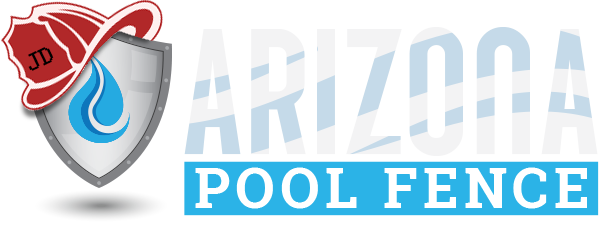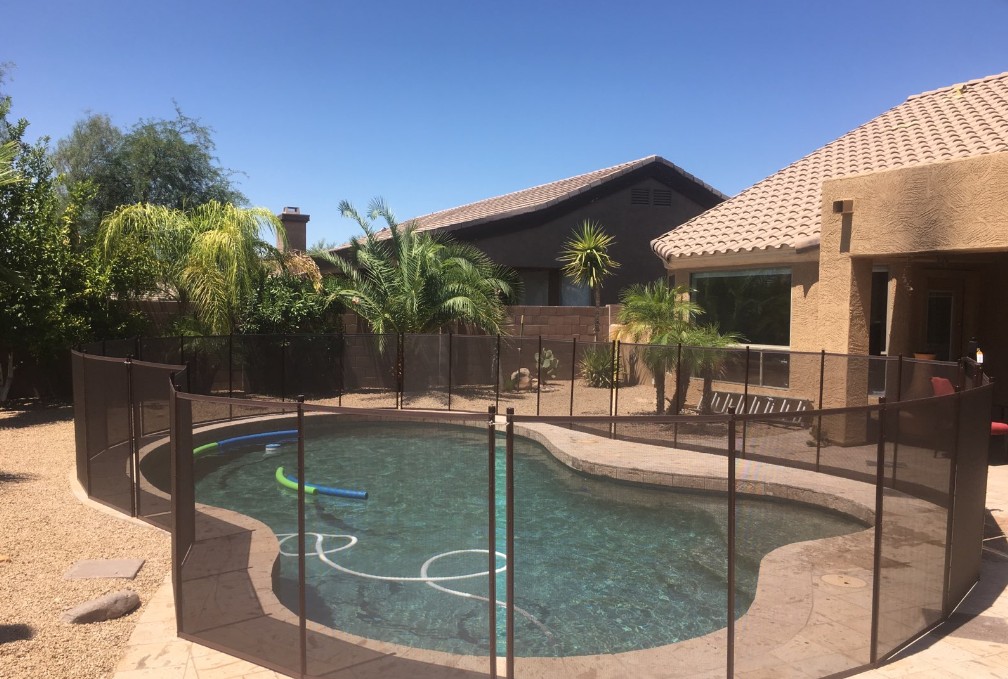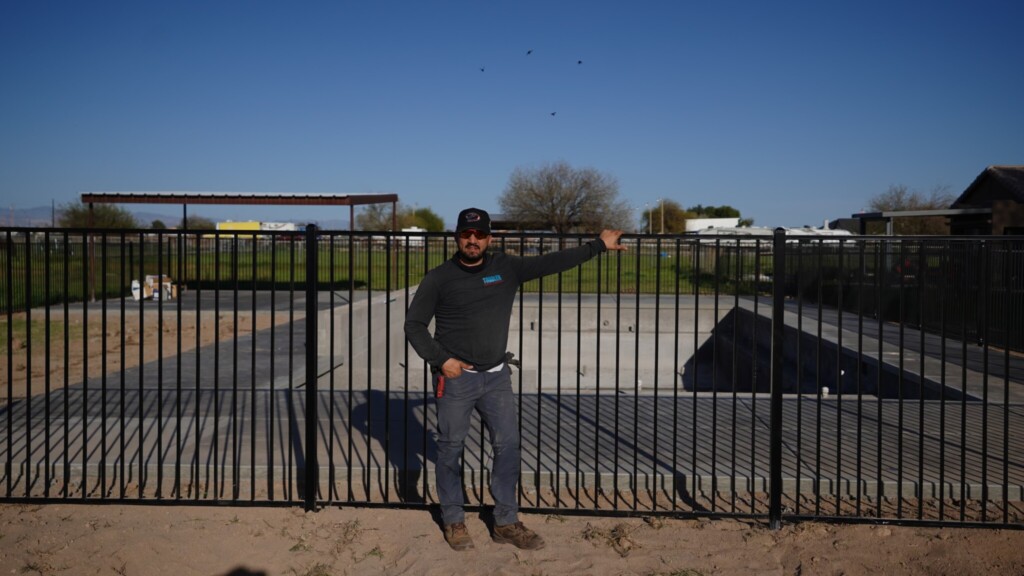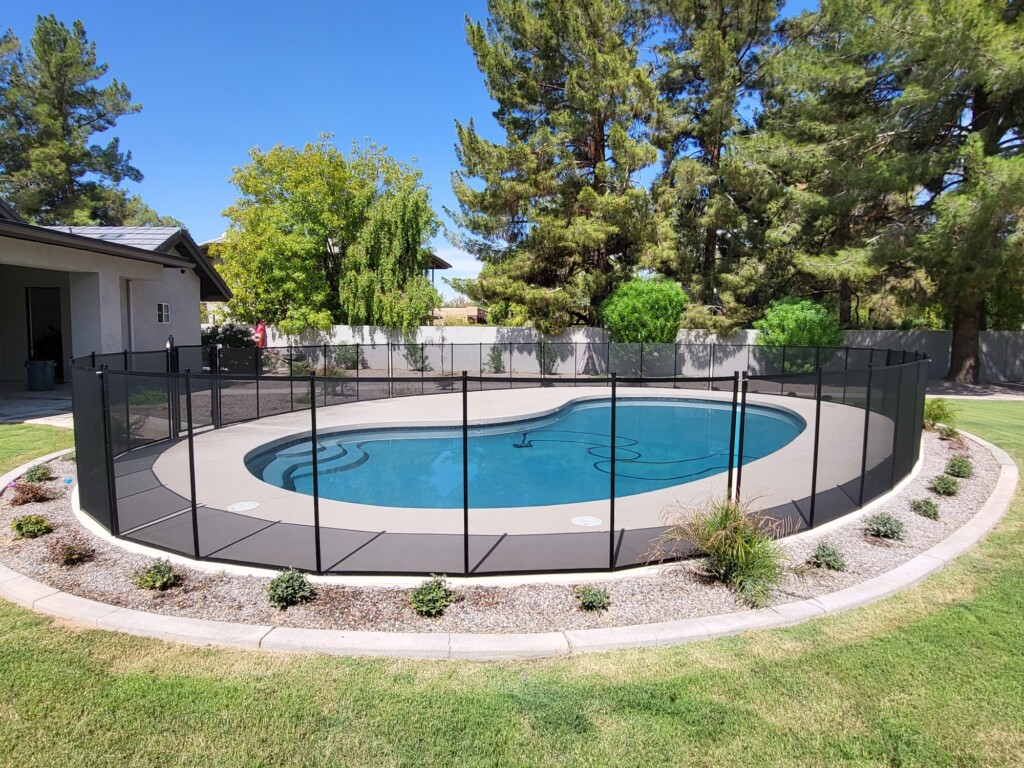DIY vs. Professional Pool Fence Installation: What’s the Right Choice for Your Home?
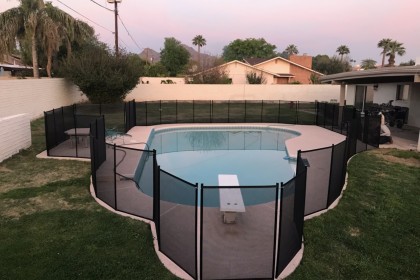
Having a swimming pool is a luxury with a lot of responsibility. Prioritizing the safety of children, pets, and guests is essential, and installing a pool fence is a highly efficient method to accomplish those goals. Numerous local rules require pool fencing to avert accidental drownings and improve overall safety. Many homeowners must decide whether to hire a professional installer or complete a DIY pool fence installation. Each method has advantages and disadvantages, and the optimal selection is contingent upon several criteria, including budget, time, skill proficiency, and adherence to local safety regulations.
Why a Pool Fence Matters
In addition to being a suggested safety precaution, pool fences are frequently required by law. Pool barriers are required in many states and towns, particularly in warmer regions like Arizona, to guard against uninvited access to domestic swimming pools and unintentional drownings.
Safety First
Drowning is one of the most common unintended causes of mortality for children under five. An appropriately placed pool fence greatly decreases accident risk and provides a vital measure of safety. By physically separating the pool from the rest of the yard, it also helps keep pets and non-swimmers safe.
Legal Compliance
In most localities, residential pool fencing must adhere to stringent rules that specify gate style, height, and spacing. In the event of an accident, noncompliance may lead to fines, problems with insurance liability, or even legal action.
Peace of Mind
A fence assures you that your pool area is safe, even if someone forgets to close the back door, whether you’re entertaining friends or letting your kids play outside.
One of the most crucial things a homeowner can do to ensure the security and enjoyment of their outdoor area is installing a pool fence.
What’s Involved in DIY Pool Fence Installation?
For homeowners who enjoy hands-on projects or want to save money, installing a pool fence can seem appealing. And in some cases, it might be. But before you head to the hardware store, it’s important to understand what’s involved.
Step-by-Step Overview
DIY pool fence installation typically includes:
- Measuring the perimeter of your pool and planning gate placement
- Choosing materials like mesh panels, vinyl sections, or removable tension-mounted fences
- Marking post locations and ensuring correct spacing
- Drilling or digging holes for fence posts, often into concrete
- Installing anchors and securing fence sections
- Leveling panels and gates to ensure smooth operation
- Double-checking compliance with local safety codes
Tools You’ll Likely Need
- Power drill with masonry bit (for concrete decks)
- Level and measuring tape
- Hammer or mallet
- Anchors, screws, and installation brackets
- Gate hardware (if applicable)
Pros of DIY Installation
- Lower upfront costs (no labor fees)
- Flexibility in timeline
- Personal satisfaction and sense of accomplishment
Cons of DIY Installation
- Time-consuming and physically demanding
- Mistakes can compromise safety or void warranties
- May not meet local pool barrier regulations
- Improper installation can result in loose panels or unstable gates
While DIY kits can work well for some, they require attention to detail and a solid understanding of safety standards. Professional installation might be the better bet for anything beyond a simple layout, or if you’re unsure about your local codes.
What to Expect from a Professional Pool Fence Installation
Hiring a professional for your pool fence installation relieves your pressure and ensures the job is done safely, securely, and to code. From site evaluation to final inspection, professionals handle every aspect of the process, especially the details that DIY projects often miss.
What Professionals Provide
- On-site consultation: They’ll assess your pool layout, surface type, and access points.
- Code-compliant planning: Pros are familiar with local regulations and will ensure your fence meets height, spacing, and gate requirements.
- Material recommendations: From mesh to wrought iron to frameless glass, they’ll help you choose a fence that suits your yard, safety needs, and budget.
- Precision installation: They’ll drill anchor points, level the fence, and secure self-closing, self-latching gates.
- Cleanup and walk-through: You’ll typically receive a final review of the work and tips for maintaining the fence long-term.
Pros of Professional Installation
- Peace of mind that everything is up to code
- Better-quality materials and craftsmanship
- Faster turnaround (often installed in one day)
- Often includes warranty on labor and materials
- Can increase home value with a clean, polished look
Cons of Professional Installation
- Higher upfront cost than DIY
- Scheduling availability may affect the project timeline
While professional installation costs more initially, it can save time, prevent costly mistakes, and ensure that your fence is as safe and durable as possible.
Key Factors to Consider When Deciding
Choosing between DIY and professional pool fence installation isn’t just about price—it’s about weighing your time, skills, legal responsibilities, and long-term goals. Here are the key factors to think through before making a decision:
1. Local Pool Safety Laws & Compliance
Many states and municipalities—especially in Arizona and California—have strict codes regulating pool fences. These rules typically cover:
- Minimum height (usually 48 inches or higher)
- Gate self-closing and self-latching mechanisms
- Maximum spacing between vertical slats or mesh openings
- Distance from the water’s edge
Failing to comply can result in fines or liability issues if an accident occurs. Professionals automatically meet the code, whereas DIYers must independently research and adhere to all regulations.
2. Your Budget
- DIY materials: Often range from $500–$1,500 depending on the type and quantity.
- Professional installation: Typically costs $1,500–$4,000+, depending on materials, terrain, and labor.
DIY saves money up front, but hidden costs like tool purchases, installation errors, or code violations can add up quickly.
3. Time and Skill Level
Installing a pool fence isn’t an afternoon task. It may involve drilling into concrete, perfectly leveling fence panels, and ensuring gates work properly. Ask yourself:
- Do you have the tools and experience?
- Are you comfortable measuring accurately and drilling safely?
- Do you have the time to do it right?
4. Maintenance and Durability
Professionally installed fences often use higher-grade materials, last longer, and come with warranties. DIY options may be less durable, especially if improperly anchored or exposed to harsh weather.
5. Aesthetics and Curb Appeal
A fence installed by a pro will likely have a clean, consistent look that enhances your property. If appearance matters (especially if you plan to sell your home), a polished installation can be a strong selling point.
Cost Comparison: DIY vs. Professional
Cost is often the biggest factor when homeowners decide between installing a pool fence or hiring a professional. While DIY might seem like the cheaper route upfront, it’s important to consider the full picture.
DIY Pool Fence Costs
- Materials only: $500–$1,500+
(Mesh fencing kits, removable panels, or vinyl sections)
- Additional expenses:
- Tools (drills, levels, concrete bits): $100–$300
- Time investment: 1–2 days minimum
- Risk of redo or repair if something is misaligned or non-compliant
- Tools (drills, levels, concrete bits): $100–$300
Professional Pool Fence Installation Costs
- Complete service: $1,500–$4,000+
- Depends on the fence material, linear footage, terrain complexity, and gate features
- Includes consultation, labor, materials, and cleanup
- May include warranties on installation and hardware
- Depends on the fence material, linear footage, terrain complexity, and gate features
Long-Term Considerations
- An improper DIY pool fence installation may need repairs, upgrades, or replacement sooner.
- A professionally installed fence is more likely to increase your home’s value and meet all city or insurance requirements.
- The cost of fines or liability due to non-compliance can easily exceed the savings from DIY.
While DIY may be budget-friendly in the short term, professional installation often delivers a stronger return in safety, appearance, and peace of mind.
Can You Meet Local Regulations on Your Own?
Compliance with local safety codes is one of the most overlooked factors in pool fence installation. These regulations exist to protect children, pets, and the general public, and failing to meet them can result in serious consequences.
What Are Typical Pool Fence Requirements?
While codes vary by state or city, most include
- Minimum fence height (usually 48 inches or more)
- No more than 4 inches of space between vertical slats or under the fence
- Self-closing, self-latching gates that open away from the pool
- Locking mechanisms are placed high enough to be out of a child’s reach
- Barriers must fully enclose the pool with no gaps or climbable features
DIY Compliance Challenges
- DIY kits often claim to be “code-compliant,” but not all meet your local code.
- Misinterpreting spacing, gate swing direction, or hardware requirements could lead to failed inspections or fines.
- A non-compliant fence could become a legal or financial issue if you’re ever selling your home.
Why Professionals Have the Edge
Professional installers know the laws inside and out. They’ll ensure your fence passes inspection the first time—and often handle permitting for you.
DIY compliance is possible if you’re confident in researching and following your local pool safety code line by line. But professional installation is often the safer bet if you want guaranteed peace of mind.
Which Option Is Right for You?
Choosing between DIY and professional pool fence installation depends on your specific needs, budget, and confidence in handling the job.
DIY Might Be Right If:
- You’re working with a tight budget
- You’re comfortable using power tools and following detailed instructions
- You’re installing a temporary or removable fence
- You’ve thoroughly reviewed and understand your local safety codes
- You have time to dedicate to a multi-step installation process
Professional Installation Might Be the Better Choice If:
- You want guaranteed code compliance and long-term safety
- You’re installing a permanent fence, such as glass or wrought iron
- You don’t have the tools, time, or desire to handle the project yourself
- You want the fence to enhance your home’s curb appeal or resale value
- Your property has uneven terrain, custom features, or complex access points
Often, homeowners choose a hybrid approach, purchasing DIY-friendly panels but hiring a professional to ensure secure installation and code compliance. This can be a cost-effective way to get the best of both worlds.
Ultimately, the right decision is the one that balances safety, quality, budget, and peace of mind for your family.
Safety First, No Matter How You Install It
Safety is the top concern, regardless of whether you decide to install your pool fence yourself or hire an expert. In addition to helping you adhere to local regulations and lower liability, a safe, properly placed pool barrier safeguards kids, pets, and guests.
For capable homeowners, installing a pool fence can save money, but there are costs involved: learning the code requirements, using the right equipment, and ensuring everything is done correctly. Professional installation is frequently worth the expense for people who need a smooth process, certain compliance, and a polished appearance.
Whatever path you choose, remember that the end result is the same: a tranquil, safe, and secure backyard.
Contact Arizona Pool Fence for a consultation if you’re unsure where to begin or need assistance weighing your alternatives.
